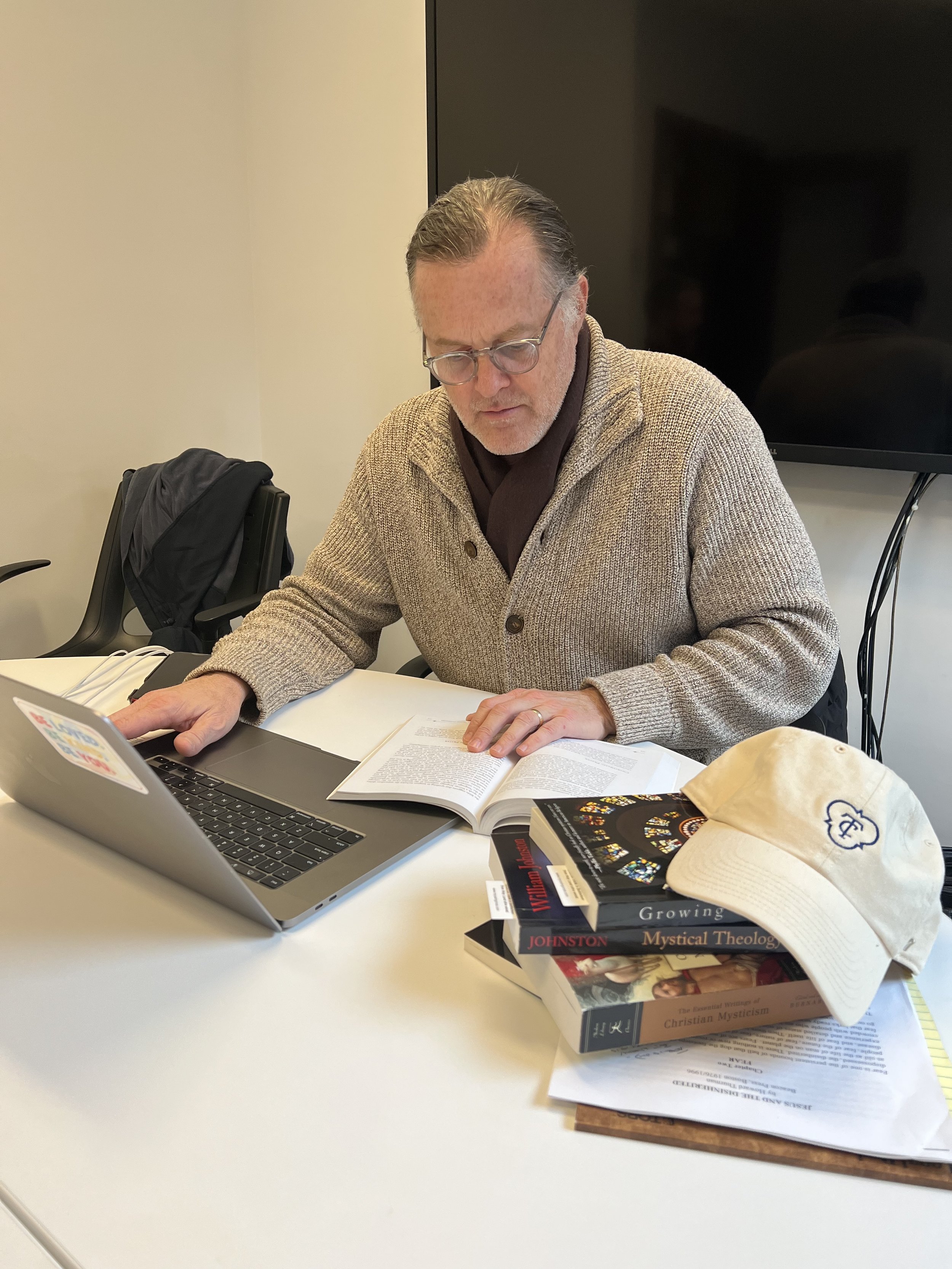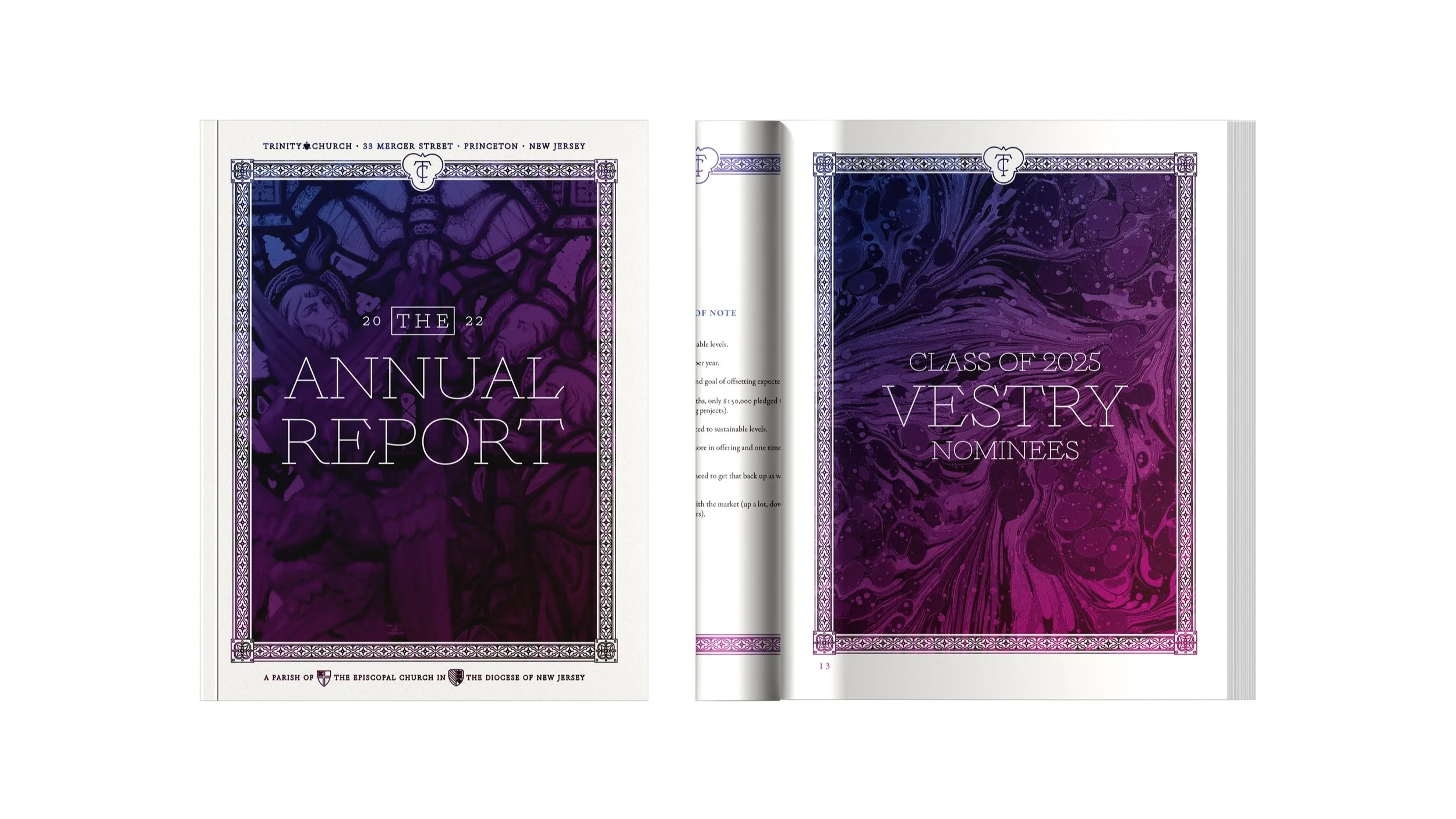Dear Beloved Ones,
I began to write this reflection on New Jersey transit as I made my way to the city for my last day of in-person classes for my Doctor of Ministry program at General Theological Seminary. (But, there is much more work, writing, and research yet to be done!) It has been a wonderful week gathering with colleagues, our beloved Nancy Hagner being one of them, as we brought this part of our three-year journey to an end. What a gift it was! We ended our time together with the same voices with which began our journey – Christian Mystics. The wisdom of St. John of the Cross, Theresa of Avila, Catherine of Sienna, Francis of Assisi, Hildegard of Bingen, Thérése of Lisieux, Julian of Norwich, Meister Eckhart, and Bernard of Clairvaux to name only a few.
The task of Christian mysticism is “to point out to us how our view of the world, including ourselves, is limited and then to assist us in overcoming this limitation so we might see the world as God sees it.” ¹
Further stated, Carl McCorman notes:
Based on the witness of all great mystics over 2,000 years of Christian history, the message of mysticism can be reduced to a single paragraph:
God is love. God loves all of us and wants us to experience abundant life. This means abiding in love – love of God, and love of neighbors as ourselves. Through prayer and worship, meditation and silence, we can commune with God, experience his presence, have our consciousness transformed by his Spirit, participate in his loving nature, and be healed and renewed in that love. This new life (what the New Testament calls “the mind of Christ”) will not only bring us joy and happiness (even when we suffer), but will also empower us to be ambassadors for God, to bring God’s love and joy and happiness to others. There is much work to be done, and the task is overwhelming, even our own need is very great, for we tend to resist God’s love, even as we hunger for it. Yet God continually call us back to his love and continually empowers us to face the challenge of bringing hope to our broken world. ²
We are in the midst of an important transitional period in the church and the world. As we live into this new era, Christian Mysticism will be a key companion and guide as we find our place and purpose in the years to come. The Jesuit theologian Karl Rahner once said, “In the days ahead, you will either be a mystic (one who has experienced God for real) or nothing at all.” William Johnston writes in his book, Mystical Theology: The Science of Love, “Authentic Christian mysticism is nothing but a living Gospel at a deep level of consciousness.” He continues on to say, “The task of a modern mystical theology is to convince the world that the death and resurrection with Jesus, far from being irrelevant, is the ultimate solution to our overwhelming problems.” ³
Forward we go, fellow mystics “[t]here is much work to be done, and the task is overwhelming, even our own need is very great, for we tend to resist God’s love, even as we hunger for it. Yet God continually call us back to his love and continually empowers us to face the challenge of bringing hope to a broken world.” ⁴
Peace & Blessings on the Way,
The Rev. Paul Jeanes III, Rector
Thursday visit to the Church of St. Mary the Virgin for Confession and Noon Eucharist.
John R. Mabry, Growing into God: A Beginner’s Guide to Christian Mysticism, p. 56
Carl McCorman, The Big Book of Christian Mysticism, p. 66-67
William Johnston, Mystical Theology: The Science of Love, p.7
Carl McCorman, The Big Book of Christian Mysticism, p. 67






















